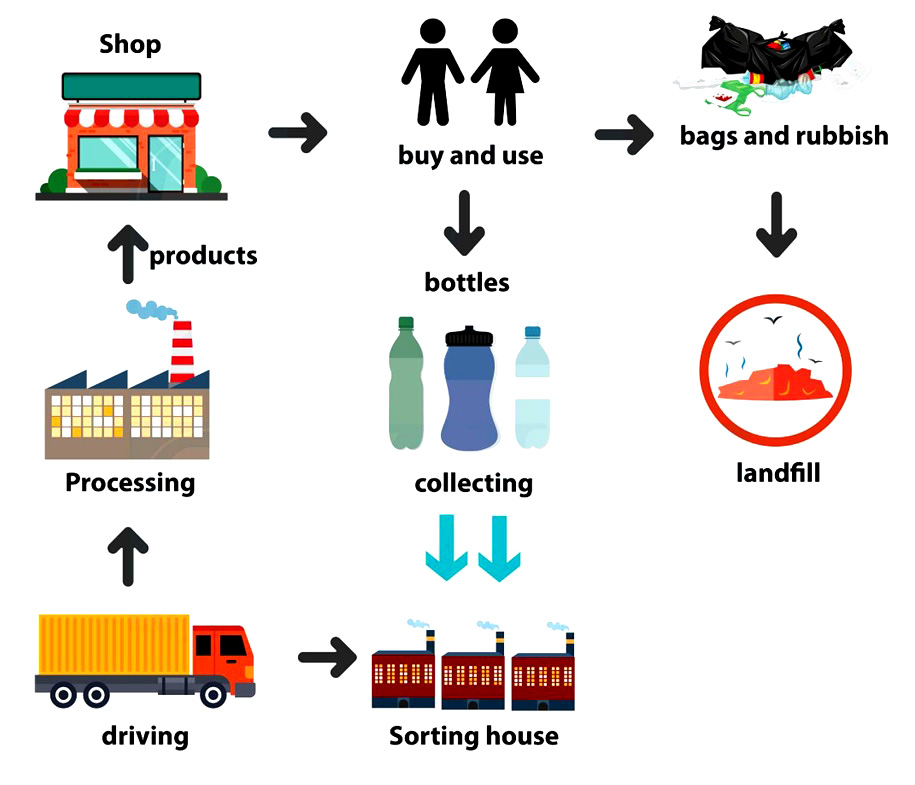The diagram below shows the recycling process of plastics.
Summarise the information by selecting and reporting the main features, and make comparisons where relevant.
Write at least 150 words.

Some people say that what children watch on TV influences their behaviour while others say the amount of time children they spend watching Tv influences their behavior. Discuss both views and give your opinion.
Give reasons for your answer and include any relevant examples from your own knowledge or experience.
Write at least 250 words.
WRITING TASK 1
The given diagram illustrates the process of plastic recycling.
Overall, there are essentially six stages in the plastic recycling process, beginning with the buying, using and discarding of new plastic products and ending with newly recycled products entering the market again.
In the first stage, new products displayed in shops are purchased, used and thrown away. Plastic bags, along with other garbage, are sent and buried in landfill sites. Plastic bottles and containers however, are collected for recycling. After being gathered, the plastic bottles are then taken to sorting houses where they are divided into different categories.
Once the plastic has been sorted, it is then loaded onto trucks and transported to factories where it is processed and made into new plastic products. These new, recycled plastic products are then finally distributed back to retail shops where they are sold, reused and discarded once again, thereby continuing the process.
(150 words)
WRITING TASK 2
Some people suggest that it is not how much time children spend watching television that has an impact on their behaviour, but rather the content of what they watch, while others disagree. Personally, I think both of these factors can have an impact on a child’s behaviour, especially when the two factors are combined.
Firstly, over the last decade or two, there has been a steady increase in the amount of inappropriate content that has been allowed to be televised. Television programmes and commercials these days are full of graphic violence, sex scenes and sexual connotations, amongst other topics that are considered unsuitable for children’s viewing. Even cartoon programmes these days are full of violence. Young children are the most affected by this issue due to the fact that they are still learning and developing ideas about the world. Being exposed to such content can negatively shape their views and personal relationships, and therefore affect their behaviour.
However, not only does the content of what children watch affect their behaviour but also how much time they spend watching television. In most modern societies it is very common for young children to spend hours of their day with their eyes glued to the television screen. Many children watch television as soon as they wake up in the morning and as soon as they come home from school. Many parents even consider the television to be like a baby-sitter, something to keep their children occupied. Unfortunately, this has many detrimental effects on children’s behaviour, the primary reason being that most children suffer from a severe lack of outdoor activity and exercise, which are vital for a child’s well-being and development.
In conclusion, I believe that both what children watch and how much time they spend watching television can impact their behaviour. Governing authorities should consider more stringent regulations when it comes to television programme content and parents need to be more careful about how much time their children spend watching television every day to avoid the negative implications that it can have on their children’s behaviour.
(344 words)
